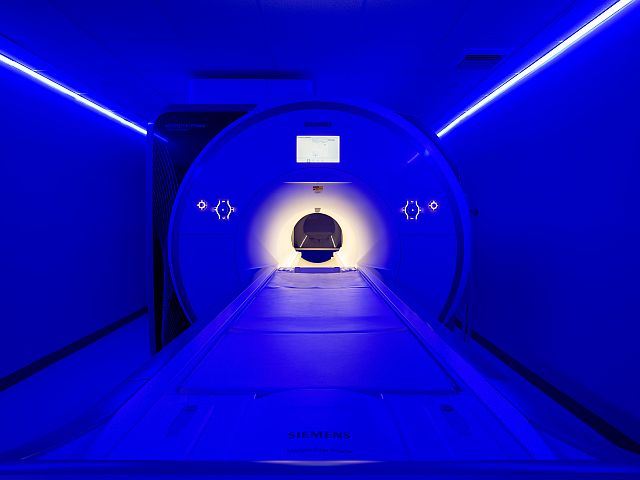Scientists have created highly effective scanners that can significantly improve surgical surgery for epilepsy, which had not previously been treated.
MRI scanners have high power and are able to detect even minor damage in the brain of patients. Devices provide higher images resolution, which allows you to more accurately detect the lesions. However, scanners can be subject to the occurrence of “dark spots” known as the loss of the signal. In order to solve this problem, researchers from the Center for Volfson of the University of Cambridge and the University of Paris-Saclea developed a new methodology. They used eight transmitters around the brain instead of one, which allowed to significantly reduce the number of these black spots.
The study published in the journal Epilepsia showed that the MRI scanner with parallel data transmission found previously not detected structural damage in nine patients. In addition, images obtained using this method were 57% more clear than those that were made when using standard technology with a “single transmission”. Doctors from the Addenbruck Hospital in Cambridge were the first to use this method, and then tested it on 31 patients with epilepsy, resistant to understand how more effective a parallel transmission scanner is compared to conventional scanners to detect brain damage.
As a result, 18 patients (58% of the total group) received new treatment options. Nine of them proposed an operation, one – laser interstitial thermal therapy, which uses heat to remove damage. Five patients were recommended by stereotactic electroencephalography (SEEG), a complex and expensive procedure in which electrodes are inserted into the brain to accurately determine the lesions.

Oslo Takrenner, Oslo 0365, Takrenner
Oslo Takrenner | OpenStreetMap
Oslo Takrenner – – Digital Marketing Platform
Oslo Takrenner press releases
Oslo Takrenner – Home & Garden – Local
Oslo Takrenner – Business – Business
Oslo Takrenner – Wanderlog
403 Forbidden
Oslo Takrenner, Oslo, Noruega | Local business
Oslo Takrenner
Oslo Takrenner, Zürich, Zürich, Germany | Business Listing Plus
Oslo Takrenner – Yarnton, OXF
Oslo Takrenner – Service – Business Support
Oslo Takrenner: Construction Services in Oslo, Norway – Building & Renovation
Just a moment…
BUSINESS SERVICES in Oslo :: Call Oslo Takrenner 21955144
Misodessa; Одесса, Одесская область | Пользователь — mistaUA
Is this accurate information? "Monero vs ZCash: A Comprehensive Comparison"
x.com/DNMBible/status/1907276818144428537
Анна Швец – YouTube
Seguidores – Decidim Sant Cugat
ZdrowieSmakuje.pl – miody z Sobótki Wrocław
partneron's Trips | Roadtrippers
partneron | partneron – Roberts Space Industries | Follow the development of Star Citizen and Squadron 42
Découvrez les lectures de g76904374 – Babelio
404: Page could not be found – «Mitwirken an Zürichs Zukunft»
partneron Profile on BitsDuJour
Page Not Found – Credly
Кто вас будет с радостью ждать в Сочи? – NET SEO
Один из превосходных способов сбросить стресс в Сочи – Net Branding